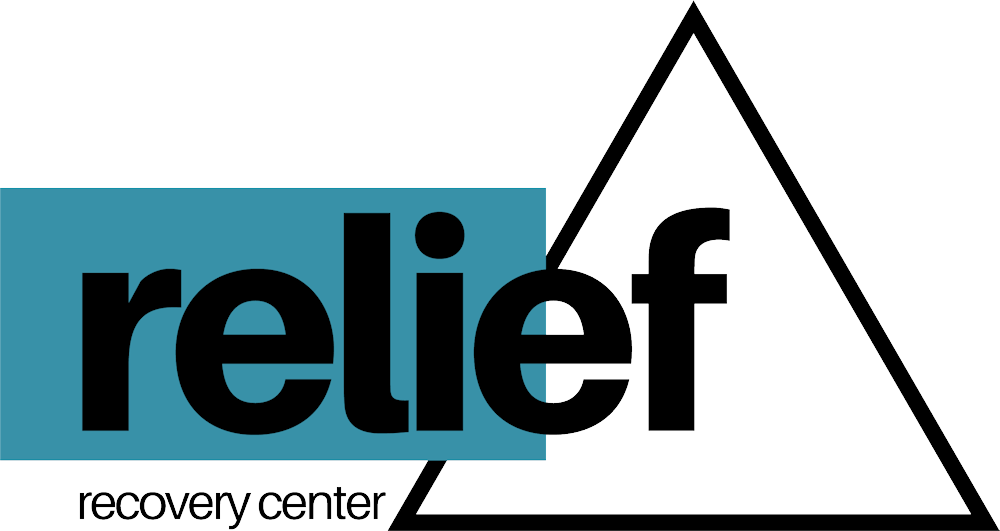Addiction is a complex, multifaceted issue that reaches far beyond the person who is struggling with it. It has a rippling effect on families, friendships, and communities. If you have a friend who is dealing with drug or alcohol addiction, you might feel helpless, confused, or even frustrated. The dynamics surrounding addiction can be difficult to navigate, and you may be unsure of how to provide support without enabling the problem.
Let’s clarify one thing first: You alone cannot “cure” your friend’s addiction. The journey to recovery is deeply personal, and ultimately, it’s a path that your friend has to choose for themselves. However, you can certainly play a significant role in encouraging them to take that first step and supporting them along the way.
Know the Signs
Recognizing addiction in a friend can be challenging, particularly if you’re not familiar with the various signs and symptoms. It’s important to remember that each person’s experience with addiction is unique. However, there are common indicators you can look out for. Here is an extended look at some of the typical signs of addiction:
Change in Behavior
- Social Withdrawal: A marked change in social behavior, such as avoiding friends, family, or social gatherings, could be a sign of addiction. This withdrawal is often a way to hide substance use or the effects of it.
- Neglecting Responsibilities: Tasks that were once routine may suddenly seem overwhelming or unimportant to your friend. This can manifest in a variety of ways, from a decline in work performance to neglecting family obligations or even self-care.
- Loss of Interest: Activities or hobbies that your friend once loved may now seem uninteresting or irrelevant. A single-minded focus on acquiring and using the substance takes precedence over other forms of engagement or pleasure.
Physical Symptoms
- Red or Glassy Eyes: Substance abuse can often cause visible physical changes, including bloodshot or glassy eyes. Of course, there are many reasons someone might have red eyes, but in the context of other signs, this could be a clue.
- Changes in Weight: Rapid weight loss or gain can be another symptom. Stimulants like cocaine or methamphetamines often suppress appetite and lead to weight loss, while other substances like alcohol can contribute to weight gain.
- Neglect of Appearance: A significant decline in personal grooming or general appearance can be indicative of an addiction. As the addiction progresses, less attention is paid to things like hygiene, attire, and overall physical presentation.
Secrecy
- Evasiveness: If your friend has become increasingly elusive about their whereabouts or activities, it may be a red flag. Addicts often go to great lengths to conceal their addiction, and this might manifest as vagueness or evasiveness.
- Dishonesty: Lying or hiding the truth is a common trait among people with addictions. This dishonesty often serves to protect the addiction itself, by preventing others from discovering and intervening.
- Isolation: Along with secrecy often comes a form of self-imposed isolation. Your friend may start to prefer spending time alone, primarily because it makes it easier to use the substance without judgment or interference.
Financial Issues
- Sudden Financial Difficulties: Addiction can be an expensive habit to maintain. If your friend is suddenly struggling with money, despite no significant change in income or expenses, it could be a sign of spending on substances.
- Unexplained Expenditures: If you notice that money is disappearing, but there’s no clear explanation for how it’s being spent, it may be going toward funding the addiction.
- Borrowing Money or Stealing: In severe cases, addiction may drive individuals to borrow money excessively or even resort to theft to sustain their habit.
Remember, while these signs can be indicators of addiction, they are not definitive proof. The presence of one or even several of these symptoms does not automatically mean your friend is struggling with addiction. However, noticing a combination of these signs should prompt you to consider the possibility seriously and take the necessary steps to offer help.
Educate Yourself
Understanding addiction from various angles can empower you to be more effective in your support role. Your friend’s experience with addiction will be profoundly personal and complex, and the more educated you are on the subject, the better you can help. Below is an expanded look at some areas where gaining knowledge will make a difference.
The Substance
- Different Effects: Substances vary in the type of physical and psychological effects they produce. For example, stimulants like cocaine produce a short-lived burst of energy and euphoria, while depressants like alcohol have a sedative effect. Understanding these differences helps you identify signs and symptoms more accurately.
- Withdrawal Symptoms: These can range from uncomfortable to life-threatening and differ from substance to substance. For instance, alcohol withdrawal can be fatal in severe cases, while withdrawal from opioids, though intensely uncomfortable, is generally not life-threatening.
- Treatment Options: Depending on the substance, different medications can assist in the treatment process. Methadone, for example, is used for opioid addiction, and there are medications to help control cravings for alcohol and nicotine. Each substance may also require specialized behavioral treatments.
Psychology of Addiction
- Cycle of Addiction: Understanding the cycle of addiction—experimentation, regular use, risk of dependency, and addiction—can offer insights into the stages your friend might be going through. This knowledge helps you understand the urgency and the kind of intervention needed at each stage.
- Emotional Triggers: Many people turn to substances as a way to cope with stress, emotional pain, or trauma. Recognizing these triggers can help you better understand the emotional aspects of your friend’s addiction and guide them toward healthier coping mechanisms.
- Denial and Cognitive Distortions: Addiction often comes with a range of cognitive distortions, like minimization (“It’s not that big of a deal”) or rationalization (“I can quit whenever I want”). Understanding these psychological barriers can prepare you for the resistance you may face when trying to help.
Treatment Options
- Detox Programs: Medical detoxification is often the first step in treating addiction, especially for substances that produce severe physical withdrawal symptoms. Detox programs provide a safe environment for managing withdrawal under medical supervision.
- Rehabilitation Centers: These are more long-term solutions that focus not just on detox but also on behavioral therapy, life skills training, and long-term planning to prevent relapse.
- Outpatient Treatment: Not everyone needs inpatient care. Outpatient programs allow individuals to live at home while receiving treatment, usually in the form of regular therapy sessions and medication management.
- Support Groups: Programs like Alcoholics Anonymous (AA) or Narcotics Anonymous (NA) can offer a sense of community and accountability. Peer support is often crucial in the long-term management of addiction.
- Family and Friends Support: There are also support groups geared towards the friends and family of those dealing with addiction. Groups like Al-Anon provide a space for loved ones to learn more about addiction, share experiences, and learn how to offer effective support without enabling.
By familiarizing yourself with these topics, you’ll be better prepared to offer constructive, compassionate support. You’ll have a clearer understanding of what your friend is going through, what resources are available, and how best to guide them toward recovery. Armed with this knowledge, you can be a more active participant in your friend’s journey toward a healthier life.
Approach with Empathy
Talking to someone about their addiction is delicate and challenging; your approach can significantly influence the outcome of the conversation. It’s a discussion that could either open the door to recovery or push your friend further into denial. That’s why it’s essential to handle this talk with great sensitivity, compassion, and a non-judgmental attitude. Here’s an in-depth look at how to make that critical conversation as impactful as possible.
Choose the Right Time and Place
- Safe Environment: The location should be a private, quiet space where neither of you feels threatened or distracted. This setting will encourage an open, honest dialogue.
- Neutral Territory: Consider choosing a location that doesn’t hold emotional weight for either of you. This can help to level the emotional playing field and keep the focus on the conversation.
- Timing Matters: Approach your friend when they are sober. The influence of substances can cloud judgment and impede meaningful communication. Also, make sure you both have ample time to talk without feeling rushed.
- Emotional Readiness: This conversation is likely to be emotionally taxing for both of you. Make sure you’re mentally and emotionally prepared for a range of reactions, from denial to anger or even sorrow.
Use “I” Statements
- Personal Experience: Framing your concerns as personal observations can make the dialogue less accusatory. Instead of saying, “You’re ruining your life,” say, “I’ve noticed you’ve been struggling lately, and it worries me.”
- Express Concern: Using “I” statements allows you to express concern without laying blame. For example, “I feel scared when I see you mixing medications because I care about your well-being.”
- Empathetic but Firm: It’s a balancing act to maintain empathy while making your concerns clear. Statements like, “I can’t imagine how hard this must be for you, but I can’t support your substance use,” can be impactful without triggering defensiveness.
Be Honest, But Non-Confrontational
- Non-Accusatory Tone: The language you use can set the tone of the conversation. Using non-confrontational language encourages your friend to engage in dialogue rather than shutting down or becoming defensive.
- Open-Ended Questions: Asking questions like, “How do you feel about your current situation?” can open the door for your friend to express themselves and can offer you greater insight into their state of mind.
- Be Prepared for Resistance: Addiction often involves denial. Your friend may not be ready to admit they have a problem, and that’s okay. The purpose of your conversation is to plant the seed of self-awareness and recovery.
- Avoid Ultimatums: It may be tempting to use strong tactics to push your friend toward recovery, but ultimatums can often backfire, causing more resentment than resolution.
By choosing the right setting, using empathetic language, and adopting a non-confrontational but honest tone, you can create a conducive atmosphere for a meaningful discussion. The ultimate aim is to make your friend feel supported and understood, increasing the likelihood that they’ll consider taking the first steps toward recovery.
However, sometimes a one-on-one conversation may not be enough to prompt your friend into taking action. In such cases, staging an intervention could be the next logical step.
Why Consider an Intervention?
An intervention is a structured meeting between the addicted individual and their loved ones, often facilitated by a professional interventionist. It aims to confront the person about the extent of their addiction and its effects on others, offering a prearranged treatment plan as an immediate next step.
Set Boundaries
Supporting someone battling addiction is emotionally complex and can lead to what is commonly called “enabling.” It’s crucial to set firm boundaries that delineate the extent of your help.
- Define Acceptable Support: Make it clear to your friend—and yourself—what constitutes acceptable ways of offering support. This could include providing emotional support, helping to find a treatment center, or attending support meetings together.
- Identify Unacceptable Behavior: Just as important as defining what you can do is defining what you can’t or shouldn’t do. For example, lending money or providing a place to use substances perpetuates the problem rather than solving it.
- Clear Communication: Have an open discussion with your friend about these boundaries. It’s important to articulate that these rules exist because you care and want to support them in ways that contribute to their recovery.
- Be Consistent: Inconsistencies in your boundaries can send mixed signals. Once you’ve established what you can and can’t do, stick to it.
- Reinforce Boundaries: It can be emotionally difficult to maintain these boundaries, especially when you’re met with manipulation or emotional pleas. However, consistency in your stance can serve as a powerful wake-up call for your friend.
Encourage Professional Help
Professional assistance often makes the difference between prolonged suffering and a successful recovery. Here are some aspects to consider:
Medical Evaluation
Encourage your friend to undergo a complete medical evaluation. A healthcare provider can diagnose the severity of the addiction and guide next steps, which may include medication to manage withdrawal symptoms or other medical needs.
Rehabilitation Programs
Depending on the diagnosis, outpatient counseling or an inpatient rehab facility may be recommended. These programs generally offer a combination of medical and psychological support to address the multidimensional aspects of addiction.
Therapy and Counseling
Therapists can delve into the underlying emotional or psychological triggers that may have led to the addiction. Various therapy approaches, like Cognitive Behavioral Therapy (CBT), are designed to replace negative thought patterns and behaviors with healthier alternatives.
Support Groups
Encourage participation in community support programs like AA or NA. These groups offer a sense of community, shared experience, and accountability that can be crucial for long-term recovery.
Be Prepared for All Outcomes
Be Prepared for All Outcomes: The Long Road Ahead
Understanding that addiction is a chronic disease prepares you for the ups and downs that come with it.
As disheartening as it may be, relapse is often a part of the recovery journey. It’s not a sign of failure but a signal that treatment needs adjustment. While relapse may feel like a setback, your continued support remains invaluable.
Be there to encourage your friend to get back on track without judgment. Recovery is often a long and complex process. Prepare for a marathon, not a sprint, and recognize that your support is one piece of a larger puzzle.
Take Care of Yourself: The Caregiver’s Health Matters Too
Your well-being is not secondary; helping someone else should not come at the expense of your own health.
- Self-Care Strategies: Dedicate time for self-care activities that rejuvenate you physically and mentally. It could be as simple as a walk, a hobby, or spending time with loved ones.
- Professional Support: If you find yourself struggling with the emotional weight, consider seeking professional guidance. Therapists can offer coping strategies tailored to your situation.
- Caregiver Support Groups: Groups like Al-Anon are designed to offer emotional support and practical advice for those supporting someone with an addiction. They provide a safe space to share experiences and learn from others.
By taking a holistic approach that includes setting boundaries, encouraging professional help, preparing for all outcomes, and prioritizing your well-being, you can offer your friend the robust support they need while ensuring you remain emotionally and mentally healthy.
Conclusion
Helping a friend with addiction is not easy, and the complexities involved can often make you feel powerless. While you can’t force someone to change, your love and support can make a world of difference. Educate yourself, approach the issue with empathy, encourage professional treatment, and remember to take care of your own well-being in the process.
You don’t have to walk this path alone—consult professionals and support groups, seek advice from those who have been in your situation, and most importantly, continue being the good friend you already are. Sometimes, the simple act of caring can be a ray of hope in someone’s darkest moments.
At the Relief Recovery Center in Massachusetts, we offer comprehensive outpatient rehab programs for those struggling with substance misuse. We provide resources, tools, and support necessary to navigate the path to recovery. Are you ready to regain control of your life and safely detox from drugs? Contact us today—we’re here to help you start a new, healthier chapter in your life.
Disclaimer: Always seek the advice of your physician or other qualified health provider with any questions you may have regarding a medical condition. The content is not intended to be a substitute for professional medical advice, diagnosis, or treatment.
Additional Resources
- Substance Abuse and Mental Health Services Administration (SAMHSA) – Signs and Symptoms: A government resource that offers comprehensive information about the signs and symptoms of various types of addiction.
- American Psychological Association – Understanding Addiction: An article exploring the psychological aspects of addiction.



